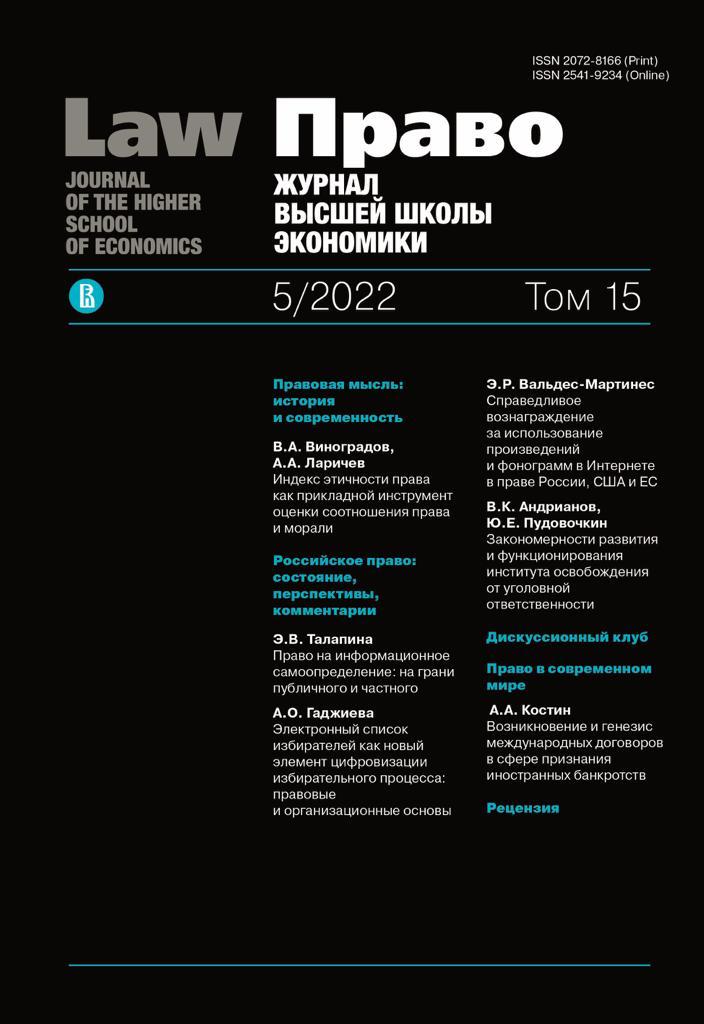Emergence and Genesis of International Treaties on Recognizing Foreign Bankruptcies
Keywords:
international treaty, European Union, cross-border bankruptcy, recognition and enforcement, foreign judgments, UNCITRAL
Abstract
The article analyzes the history of emergence, as well as the genesis of international treaties governing the recognition of foreign bankruptcies. The author argues that historically, the issue of legal effect of a foreign insolvency procedure was resolved through the prism of the theory of statutes, according to which the laws of the state were divided into real and personal. At the same time, the article draws attention to the existence of significant contradictions regarding the attribution of insolvency legislation to the number of real or personal statutes in doctrine XIX. Thus, several authors argued that insolvency legislation fell into the category of the real statutes, since its main purpose was to distribute the property of an insolvent debtor. It followed from the above that the insolvency legislation had a purely territorial effect and in each individual state it was required to open a separate bankruptcy procedure. In contrast to this view, other scholars have argued that bankruptcy law is a personal statute, since its main purpose is to establish control over a debtor who has been unable to ensure the proper conduct of affairs. In order to eliminate contradictions between these approaches, between the states in the 19th century agreements on mutual recognition of foreign bankruptcies were concluded. In light of the fact that the conclusion of international agreements on the mutual recognition of bankruptcies was considered as an act of confidence in relation to a foreign state, as a rule, such international agreements were concluded between neighboring states. For these reasons, the conclusion of a multilateral treaty (international document) in the field of mutual recognition of foreign procedures remained impossible for a long time. In this regard, at the moment, the conclusion of such international treaties (international documents) is possible precisely within the framework of regional and integration associations like the European Union. Also, for these reasons, the unification of legislation in the field of regulation of cross-border bankruptcy is often carried out on the basis of “soft law” acts — the 1997 UNCITRAL Model Law.
Published
2022-03-25
How to Cite
KostinA. (2022). Emergence and Genesis of International Treaties on Recognizing Foreign Bankruptcies. Law Journal of the Higher School of Economics, 15(5), 228-250. https://doi.org/10.17323/2072-8166.2022.5.228.250
Issue
Section
Law in the Modern World





